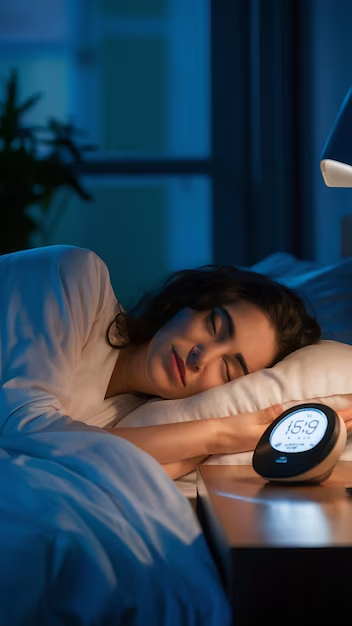Have you ever noticed that some people feel most alert and creative late at night while others prefer to wake up with the sunrise? These late sleepers are often called night owls in sleep. Being a night owl is not just a lifestyle choice; it’s closely tied to your circadian rhythm, the body’s internal clock that regulates sleep and wake cycles. Understanding what it means to be a night owl, its effects on health, and how to manage it can help improve both sleep quality and overall well-being.
Thank you for reading this post, don't forget to subscribe!
What Does It Mean to Be a Night Owl?
A night owl is someone who naturally feels more energetic, productive, and awake during the evening and nighttime hours. Instead of going to bed early, night owls usually fall asleep late—sometimes after midnight—and prefer waking up later in the morning.
This pattern is linked to chronotypes, which describe individual sleep preferences. Just as “early birds” thrive in the morning, night owls thrive at night. Neither is inherently good or bad; it’s simply the body’s biological inclination.
Why Are Some People Night Owls?
The tendency to be a night owl comes from a combination of genetics, environment, and lifestyle factors:
- Genetics: Research suggests that certain genes influence whether you are more likely to be a night owl or an early bird.
- Circadian rhythm: Night owls have a slightly delayed body clock, meaning melatonin (the sleep hormone) is released later at night.
- Lifestyle choices: Exposure to artificial light, late-night work, or social habits can reinforce a night owl’s sleep pattern.
Effects of Being a Night Owl on Health
While being a night owl is natural for some people, it may cause challenges in a society structured around early schedules. Here are some of the common effects:
1. Sleep Deprivation
Night owls often stay awake late but still need to wake up early for work or school. This mismatch leads to sleep deprivation, which can affect concentration, mood, and memory.
2. Mental Health Concerns
Studies show that night owls are more prone to anxiety, depression, and stress, especially when forced into early wake times.
3. Metabolic and Physical Health Issues
Irregular sleep patterns can disrupt metabolism. Night owls may have a higher risk of obesity, diabetes, and cardiovascular problems if poor sleep continues long-term.
4. Performance and Productivity
Night owls often feel sluggish in the morning but perform better in the late afternoon or evening. This can create a clash with traditional 9-to-5 work schedules.
Benefits of Being a Night Owl
It’s not all negative—there are unique strengths that come with being a night owl in sleep:
- Creativity boost: Many night owls report higher creativity and problem-solving skills at night.
- Adaptability: Night owls often handle changes in schedules, such as travel across time zones, better than early birds.
- Evening productivity: Tasks that require focus or deep thinking can be performed efficiently during late hours when distractions are fewer.
Tips for Night Owls to Improve Sleep Quality
If you’re a night owl, you don’t necessarily need to change who you are—but you can take steps to ensure better sleep health and balance with daily responsibilities.
1. Gradual Adjustment of Sleep Schedule
Shift bedtime earlier by 15–30 minutes every few days if you need to align better with morning routines.
2. Limit Blue Light Exposure
Avoid screens before bedtime, as blue light delays melatonin production and keeps you awake longer.
3. Create a Sleep-Friendly Environment
Use blackout curtains, keep your bedroom cool, and establish a relaxing pre-sleep routine to encourage natural rest.
4. Practice Consistency
Even on weekends, stick to a similar bedtime and wake time to stabilize your circadian rhythm.
5. Use Morning Light
Expose yourself to natural sunlight in the morning to help reset your body clock and boost alertness.
Also read: It Is Better To Be A Night Owl Or Early Bird
Can Night Owls Become Early Birds?
While genetics play a role, it is possible for night owls to train their circadian rhythm with consistent effort. Techniques such as light therapy, sleep hygiene practices, and mindful lifestyle changes can help shift sleep patterns earlier over time. However, it’s equally valid for night owls to embrace their natural rhythm as long as they maintain adequate sleep duration and quality.
Being a night owl in sleep is a natural variation of human biology. While it can present challenges in a society that favors early risers, night owls have unique strengths such as creativity, adaptability, and evening productivity. The key is to maintain healthy sleep habits, reduce the risks of sleep deprivation, and find balance between your natural sleep preferences and daily responsibilities.
If you’re a night owl, remember: you don’t have to fight your nature. With the right strategies, you can thrive on your own rhythm while still enjoying the benefits of restorative, high-quality sleep.



